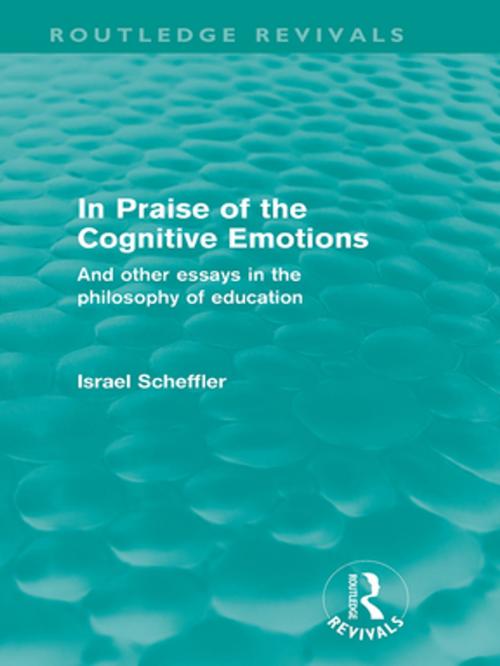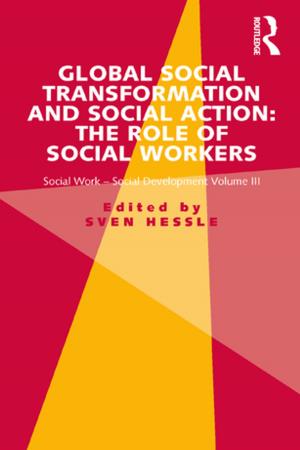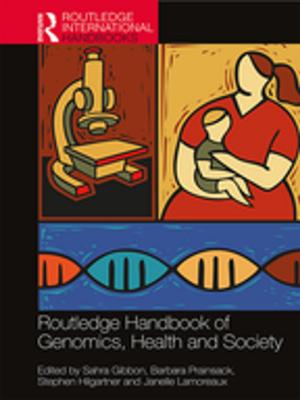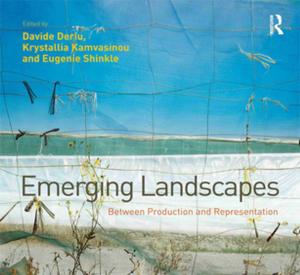In Praise of the Cognitive Emotions (Routledge Revivals)
And Other Essays in the Philosophy of Education
Nonfiction, Reference & Language, Education & Teaching, Educational Theory, Educational Reform, Philosophy & Social Aspects| Author: | Israel Scheffler | ISBN: | 9781136955600 |
| Publisher: | Taylor and Francis | Publication: | July 19, 2010 |
| Imprint: | Routledge | Language: | English |
| Author: | Israel Scheffler |
| ISBN: | 9781136955600 |
| Publisher: | Taylor and Francis |
| Publication: | July 19, 2010 |
| Imprint: | Routledge |
| Language: | English |
First published in 1991, In Praise of Cognitive Emotions comprises fourteen of Scheffler's most recent essays – all of which challenge contemporary notions of education and rationality. While defending the ideal of rationality, he insists that rationality not be identified with a mental faculty or a mechanism of inference but taken rather as the capactity to grasp principles and purposes and to evaluate them in the light of relevant reasons. Examining a broad range of issues – from computers in school to math education, from metaphor to morality – these essays are unified by Scheffler's conviction of the primacy of critical thought in education.
Scheffler is especially concerned to promote a broad interpretation of rationality to counteract the narrowing of vision accompanying the technological revolution now sweeping education. Addressing three specific areas of curriculum, the work offers a critique of computer applications to education, develops a notion of strategic rationality in understanding mathematical reasoning, and, contrary to prevalent notions of moral education, connects reason with care, thus emphasizing the intimate connection between emotion and reason and challenging the dominant perception of the two as oppositional.
First published in 1991, In Praise of Cognitive Emotions comprises fourteen of Scheffler's most recent essays – all of which challenge contemporary notions of education and rationality. While defending the ideal of rationality, he insists that rationality not be identified with a mental faculty or a mechanism of inference but taken rather as the capactity to grasp principles and purposes and to evaluate them in the light of relevant reasons. Examining a broad range of issues – from computers in school to math education, from metaphor to morality – these essays are unified by Scheffler's conviction of the primacy of critical thought in education.
Scheffler is especially concerned to promote a broad interpretation of rationality to counteract the narrowing of vision accompanying the technological revolution now sweeping education. Addressing three specific areas of curriculum, the work offers a critique of computer applications to education, develops a notion of strategic rationality in understanding mathematical reasoning, and, contrary to prevalent notions of moral education, connects reason with care, thus emphasizing the intimate connection between emotion and reason and challenging the dominant perception of the two as oppositional.















